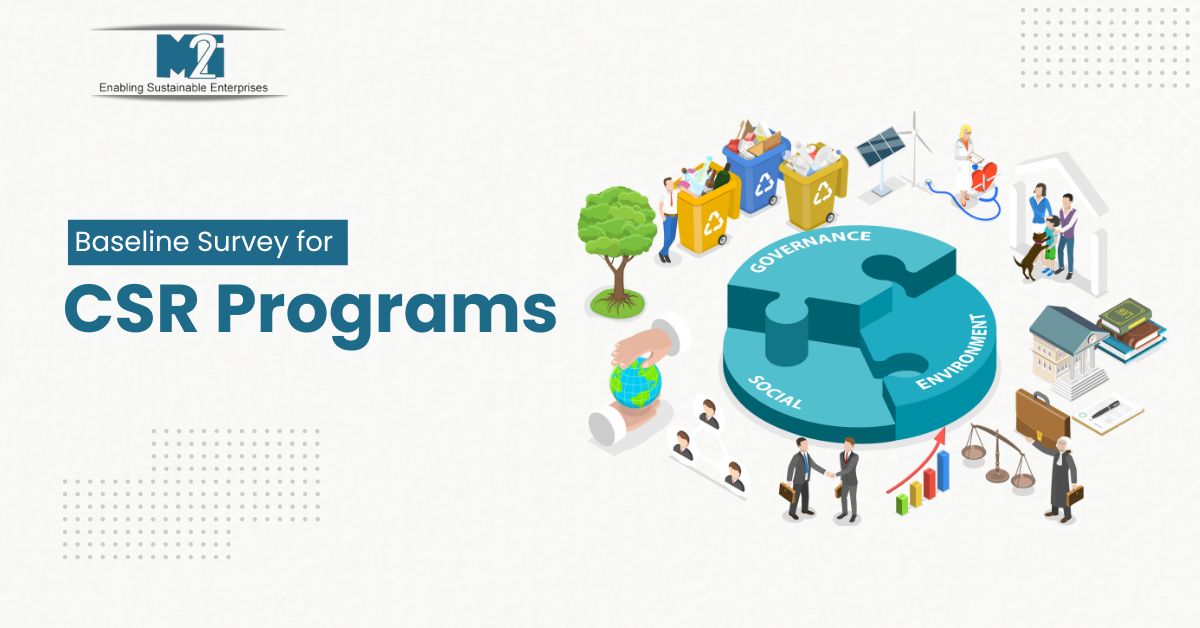
Baseline Survey for CSR Program
Baseline Survey for CSR Program
Corporate Social Responsibility (CSR) programs have evolved into powerful tools for businesses to make a positive impact on society. However, to truly measure and maximize their effectiveness, a well-executed baseline survey for CSR program is indispensable. In this article, we'll explore the vital role of a baseline survey in CSR initiatives and how it lays the foundation for meaningful change.
Understanding CSR Programs
CSR programs are no longer just philanthropic gestures; they are strategic initiatives that align business values with societal needs. These programs address various social, environmental, and economic challenges, from education and healthcare to environmental sustainability and poverty alleviation. The impact of CSR efforts can be significant, but it requires a structured approach to ensure that resources are used effectively and that outcomes are measurable.
The Importance of a Baseline Survey
A baseline survey serves as the starting point for any CSR program. It's a comprehensive assessment conducted before the program's launch to collect relevant data, set benchmarks, and establish a clear understanding of the existing conditions within the target community or area of impact. Here's why it's so crucial:
-
Data-Driven Decision Making: A baseline survey provides objective data that guides program design and implementation. It helps identify specific issues, gaps, and opportunities, allowing for tailored interventions.
-
Measurable Impact: Without a baseline, it's challenging to quantify the impact of CSR efforts accurately. A baseline survey creates a reference point against which progress can be measured.
-
Resource Allocation: Understanding the baseline conditions helps allocate resources efficiently. It ensures that investments are directed where they are needed most.
-
Accountability and Transparency: Stakeholders, including employees, investors, and the community, expect transparency and accountability in CSR programs. A baseline survey demonstrates a commitment to evidence-based decision-making and results.
-
Adaptation: As circumstances change, CSR programs may need to adapt. A baseline survey allows for flexibility in adjusting program strategies based on real-time data.
The Components of a Baseline Survey
A comprehensive baseline survey typically includes:
-
Community Needs Assessment: Understanding the specific needs and priorities of the target community.
-
Resource Mapping: Identifying existing resources and potential partnerships that can be leveraged for the program.
-
Socioeconomic Data: Collecting data on demographics, income levels, education, and health status.
-
Infrastructure and Services: Assessing the availability and quality of essential services like healthcare, education, and sanitation.
-
Environmental Factors: If applicable, evaluating environmental conditions and sustainability concerns.
-
Stakeholder Engagement: Involving key stakeholders, including community members, local authorities, and experts, in the data collection process.
Conclusion
In the world of CSR, the baseline survey is the compass that guides the journey towards meaningful and sustainable change. It sets the stage for targeted, evidence-based interventions that maximize the impact of CSR programs. Whether you're a business leader, CSR manager, or a stakeholder in a CSR initiative, remember that the road to social responsibility success begins with a thorough understanding of the baseline conditions. It's not just a survey; it's a commitment to creating a better future for all.